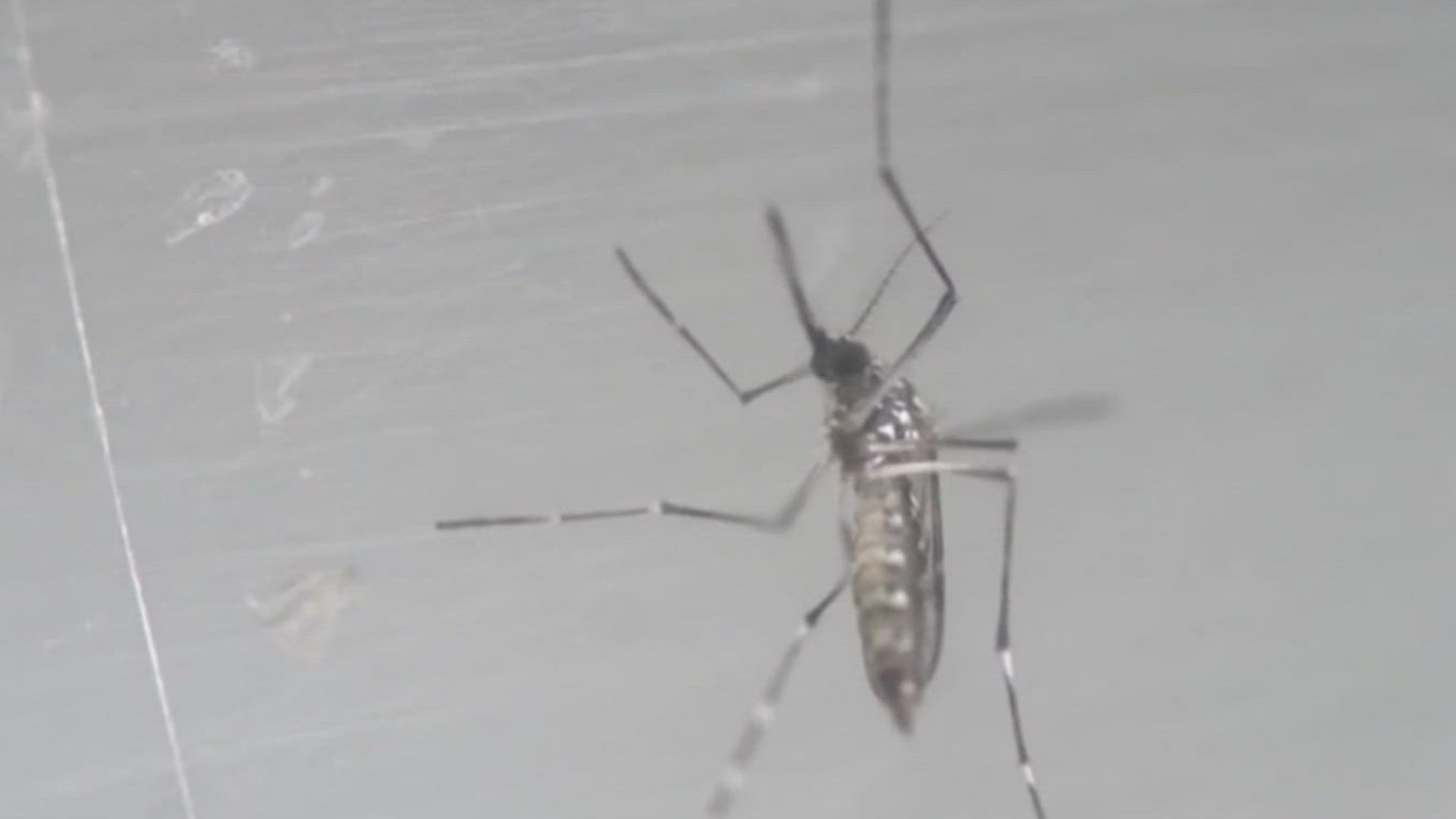CORPUS CHRISTI, Texas — This week's cold front brought in some much-needed rain, but those who have lived in the Coastal Bend for some times know that with the rain mosquitoes come.
Thankfully, there haven't been reports of West Nile virus found in any mosquitoes in our area this year. However, the recent death of a Travis County resident may have some folks concerned.
Assistant Director of Corpus Christi - Nueces County Public Health, Dr. Dante Gonzalez says that many people may not know that the West Nile Virus typically starts in a bird.
"Then the mosquito will feed on the bird and then the mosquito will get infected and then feed on a human. Then through that bite and that mechanism is how a human will typically get the virus," Gonzalez said.
Gonzalez says while there hasn't been a West Nile related death in Nueces County since 2016, he says that in 2021, the health district saw twenty-five positive mosquito pools --the largest amount in the last 8 years.
"We did have a possible case in 2021 that was originally diagnosed as a West Nile Encephalitis case which later, after they did all the medical tests and the PCR (test), it ended up being a St. Louis Encephalitis case. That was changed and reflected at the state level, " he said.
There haven't been in positive test results in 2023, but Dr. Gonzalez says that it's still important to protect yourself from those pesky insects.
"One of the most important things for the community to know, aside from knowing that the virus could lead to some viral-like symptoms... The most important thing is how to reduce breeding site for mosquitoes," he said.
With 13 different traps located throughout the Corpus Christi, Interim Director of Corpus Christi Animal Care Services William Cox says that the city captures and sends off mosquito samples to the state on a weekly basis.
"On every Thursday, we actually have these gravity traps where we collect the mosquitoes that have come into the trap and then we ship those off to Austin where they're tested. So, usually they'll receive that by Friday and by Monday we'll have our results," Cox said.
Should a mosquito come back positive for West Nile, Cox says the city's vector control crew has plans in place to prevent the spread of the virus.
"And when we do get that positive back, a couple things are going to happen. The first is that we're going to initiate a spraying which are going to kill the adult mosquitoes in the area. We'll go one mile from that test site, and we'll do that for three consecutive days. And then we're going to test again and send those back off until we get the negative result," he said.

